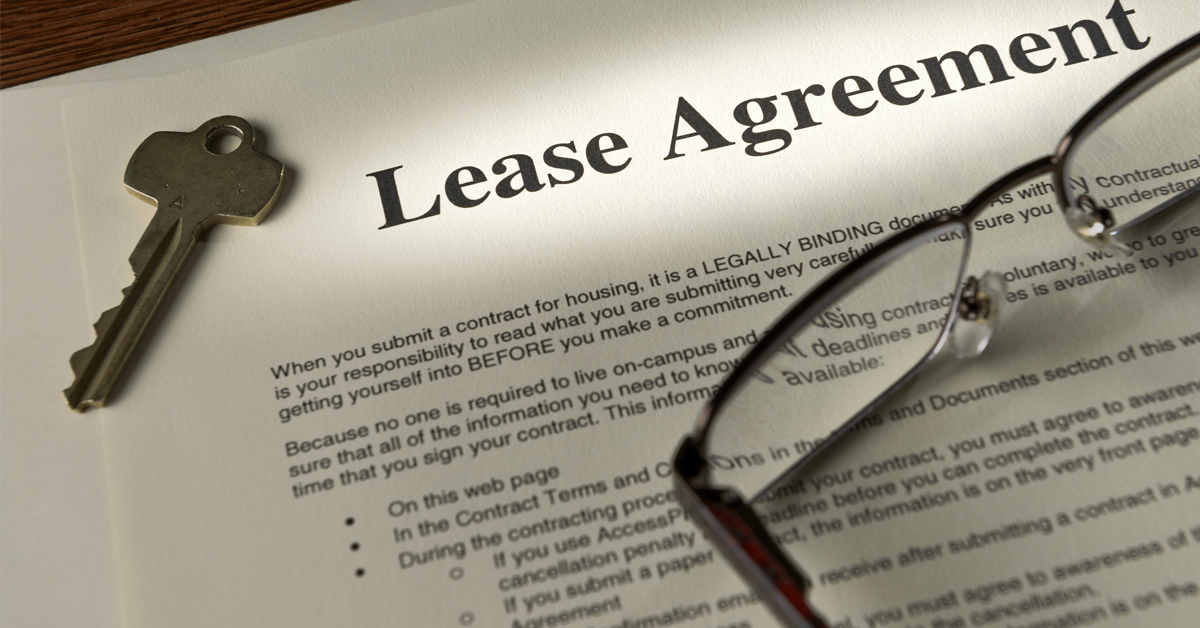
Regardless of whether you are an investor in commercial real estate or a business owner looking to find the right space, understanding the different types of leases (and there are many) is an important first step in successfully navigating the commercial market. One common type of lease you may encounter is a net lease, in which a lower base rent is charged but the tenant is responsible for some or all of the additional expenses associated with the property. There are several different types of net leases (single, double, triple and absolute triple), but let’s focus specifically on a triple net lease.
Triple Net Lease
A triple net lease (NNN) is among the most common type of lease that will be found for both retail space and freestanding commercial buildings. The three nets referred to in the title are insurance, property taxes, and CAM (common area maintenance) fees. In a triple net lease, the tenant is responsible for some or all of these three expenses (whereas in a single net lease they would only be responsible for some or all of the property taxes and in a double net lease only for some or all of the property taxes and insurance premiums), on top of their base rent, utilities and other regular overhead expenses. In some instances, common area utilities and additional operating expenses (such as staffing a front lobby receptionist desk or a hiring a janitor) will also be considered the tenant’s responsibility.
In a shared space, a landlord will determine how much of these additional expenses each tenant is responsible for based on the percentage of the building’s square footage they are occupying. For example, a tenant leasing 2,000 square feet of a 20,000 square foot building would likely take on 10% of the entire building’s additional overhead costs.
Pros for Tenants
While triple net leases are typically more landlord-friendly, there are some definite benefits for tenants as well. For one thing, being that the landlord has essentially handed over all of the financial responsibility to the tenant, they are able to charge considerably lower prices for base rent than a standard lease (also known as a gross lease). Another draw for tenants is the stability of a considerably longer lease term of 10-15 years.
Cons for Tenants
Unfortunately, the list here is a bit longer. For starters, the increased operational expenses might be difficult for some businesses to keep up with on a monthly basis. On top of that, base rent may increase slightly each year (per the terms agreed upon with the landlord) and property taxes could also rise each year. The tenant is also completely responsible for anything that might happen to the building, including structural damage from a natural disaster. Not only will the tenant need to pay for the insurance on the building, but they will also be responsible for any deductibles that need to be met. All of these unpredictable costs can make it difficult for a tenant to budget correctly from year to year.
A tip to take into consideration, if you wish to find a triple net lease as a tenant, is to look for a building that is structurally sound and is not in need of any big expenses right up front (such as a new roof or HVAC system).
Pros for Landlords/Investors
Triple net leases are becoming increasingly popular with investors, due to their ability to supply steady income with a relatively low risk. Longer lease terms of 10-15 years ensure a building will remain occupied and continue to bring in revenue. They also require very little work from the investor once the initial purchase has been made, being that all overhead expenses are passed onto the tenant(s) and the lease absolves the landlord of the need to make any tenant improvements.
Cons for Investors
On the other hand, however, triple net leases can come with some risk, particularly if they are not executed correctly. Many landlords prefer a bondable net lease as opposed to a standard triple net lease due to the fact that this ensures a tenant cannot break their lease prior to its expiration date if the overhead expenses become too much. Another downfall of offering this type of lease is that it typically requires the investor to have a substantial net worth in order to purchase the building up front. Smaller investors would need to participate in NNN real estate with the help of REIT’s (real estate investment trusts).
If you’re still not sure whether a triple net lease option is right for you, as a tenant or as a landlord, be sure to continue doing your research before making a commitment.

Contact the author